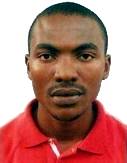Multiobjective optimization of multipass turning machining process using the genetic algorithms solution
Abstract
The study involves the development of multi-objective optimization model for turning machining process. This model was developed using a GA - based weighted-sum of minimum production cost and time criteria of multipass turning machining process subject to relevant technological/practical constraints. The results of the single-objective machining process optimization models for the multipass turning machining process when compared with those of multi-objective machining process model yielded the minimum production cost and minimum production time as $5.775 and 8.320 min respectively (and the corresponding production time and production cost as 12.996min and $6.992, respectively), while those of the multi-objective machining process optimization model were $5.841and 9.097 min. Thus, the multi-objective machining process optimization model performed better than each of the single-objective model for the two criteria of minimum production cost and minimum production time respectively. The results also show that minimum production time model performs better than the minimum production cost model. For the example considered, the multi-objective model gave a lower production time of 30.0% than the corresponding production time obtained from the minimum production cost model, while it gave a lower production cost of 16.46% than the corresponding cost obtained by the minimum production time model.
Downloads
Copyright (c) 2019 Patrick Ejebheare Amiolemhen, Joshua Ahurome Eseigbe

This work is licensed under a Creative Commons Attribution 4.0 International License.
Authors retain full copyright to their individual works.
The Journal of Mechanical and Energy Engineering (JMEE) publishes fully open access articles.
Open Access benefits:
- High visibility – all articles are made freely available online for everyone worldwide, immediately upon publication.
- Increased visibility and readership.
- Rapid publication.
- All articles are CC BY licensed. The final article can be reused and immediately deposited in any repository.
- Authors retain the copyright to their work.
By publishing with us, you retain the copyright of your work under the terms of a Creative Commons Attribution 4.0 International (CC BY) license.
The CC BY license permits unrestricted use, distribution and reproduction in any medium, provided appropriate credit is given to the original author(s) and the source, a link to the Creative Commons license is included, and it is indicated if any changes were made. This means that you can deposit the final version of your work in any digital repository immediately after publication.
We are committed to providing high-level peer review, author and production services, so you can trust in the quality and reliability of the work that we publish.




